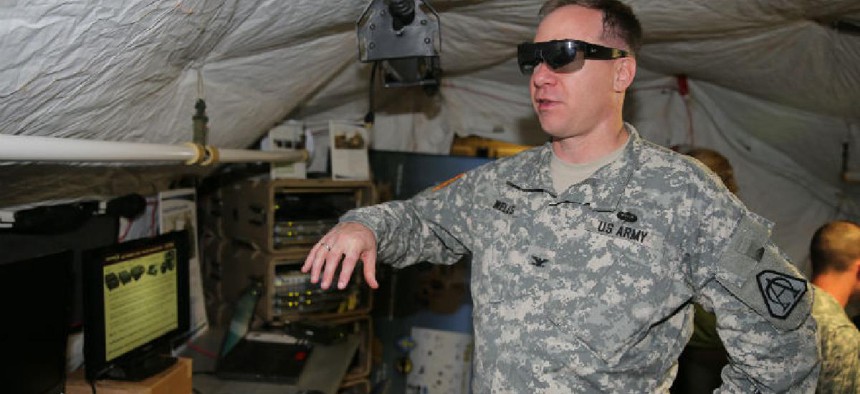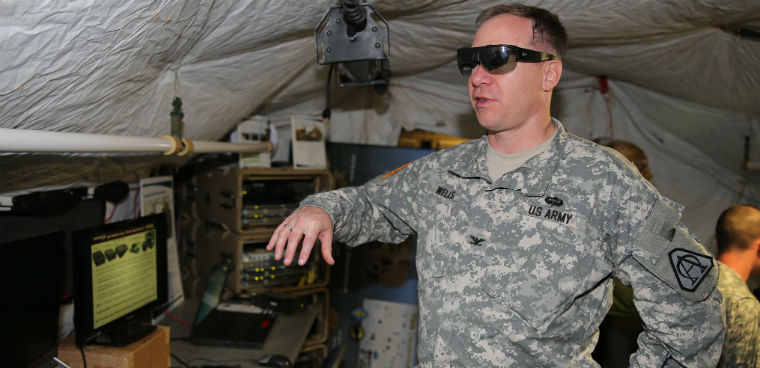Raytheon, Palantir win $876M battlefield tech contract

After years of protests and legal wrangling, Palantir is finally part of the Army's battlefield intel analytics system.

After years of protests and legal wrangling, Palantir is finally part of the Army's battlefield intel analytics system.
The Army announced on March 8 that Palantir and Raytheon were both winners in the commercial competition for work on the Army's Distributed Common Ground System. The 10-year DCGS-A Increment 1 Capability Drop 1 has a ceiling value of $876 million and covers a range of hardware and software designed to operate in austere battlefield environments.
Palantir, a Silicon Valley firm founded by sometime Trump tech adviser Peter Thiel and Alex Karp that specializes in data analytics, has long advocated for opening up the multibillion DCGS-A to commercial competition. Palantir has argued that its software platform is preferable to a multiproduct intelligence system that includes a mix of commercial tools and bespoke military software.
Raytheon is the incumbent integrator on the DCGS-A contract.
In October 2016, a federal judge issued an injunction stopping the Army from moving ahead with a solicitation for the second increment of DCGS-A, which sought an integrator to manage the system.
The first delivery order was awarded concurrently with the multiple award
indefinite delivery-indefinite quantity contract, which supported a "competitive test-fix-test phase" to help the Army select hardware and software solutions to put in the field.
Program manager Col. Robert Collins said the order "directly addresses soldier's feedback for improving usability, will enhance the tactical military decision making and intel processes, and support situational understanding at the tactical level."
Palantir and Raytheon won't be teaming up. An Army spokesperson told FCW that the two contractors will be competing on subsequent delivery orders.
Palantir and critics in Congress have long railed against the DCGS-A system as ineffective and representative of the Army's resistance to innovative commercial products.
In an email to FCW, Todd Probert, vice president, Mission Support and Modernization, Raytheon Intelligence, touted the agility and flexibility of the company's FoXTEN software.
"The system integrates commercial off-the-shelf products and is designed to be fully open, allowing the Army to rapidly incorporate new capabilities from any developer as they become available. It is streamlined and intuitive so soldiers can learn how to operate the system quickly," Probert said.
Palantir did not respond to an emailed request for comment.
The Army is currently conducting market research and product demonstrations for Capability Drop 2 of DCGS-A. The Army announced March 12 that an industry day for the contract will take place sometime before the end of June.



